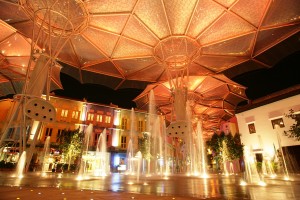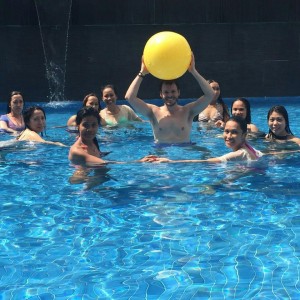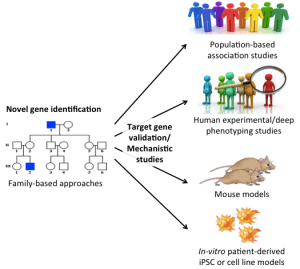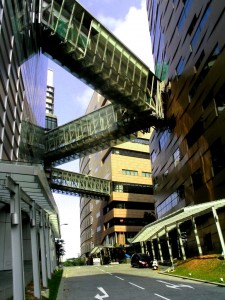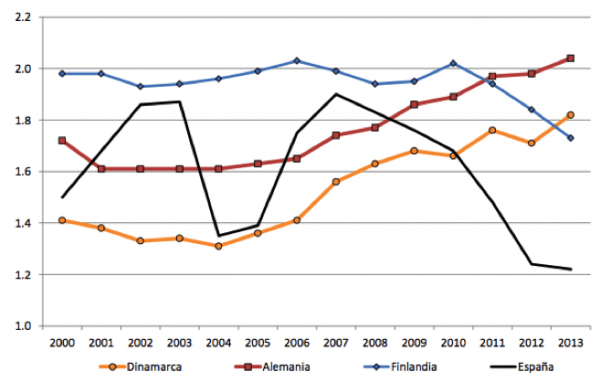The Life of a Postdoc in Singapore
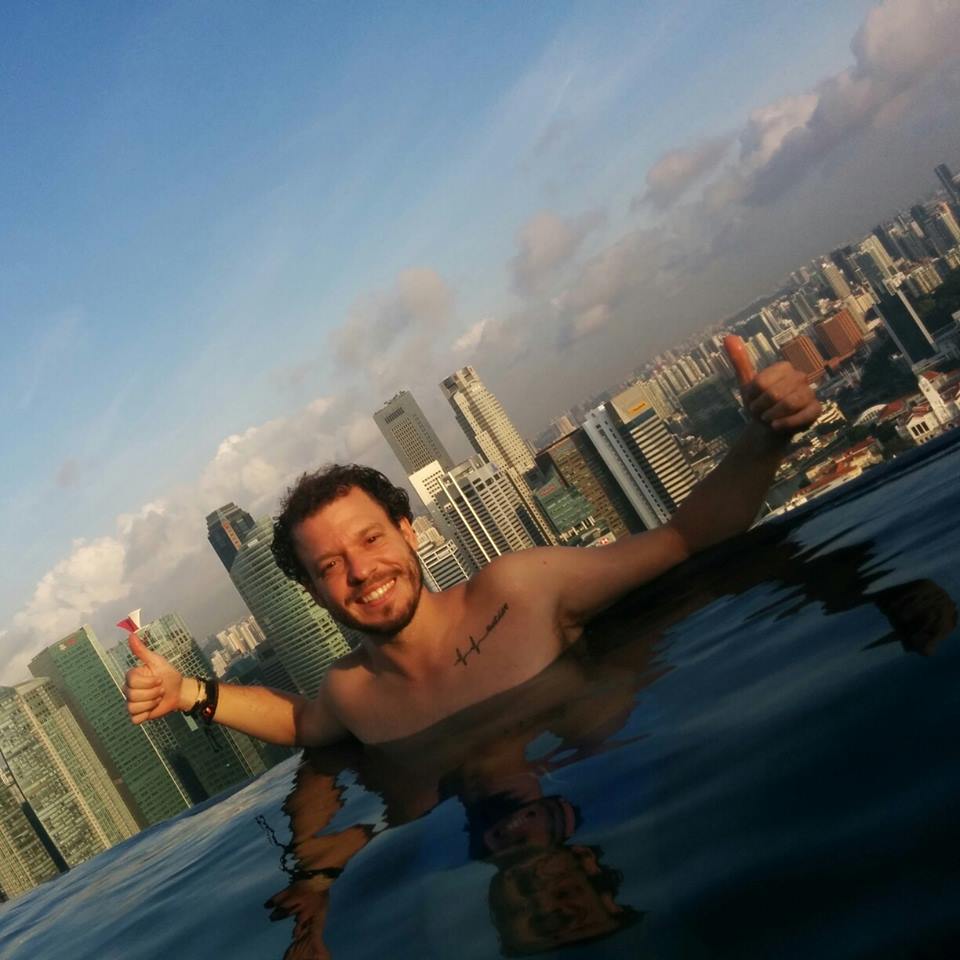
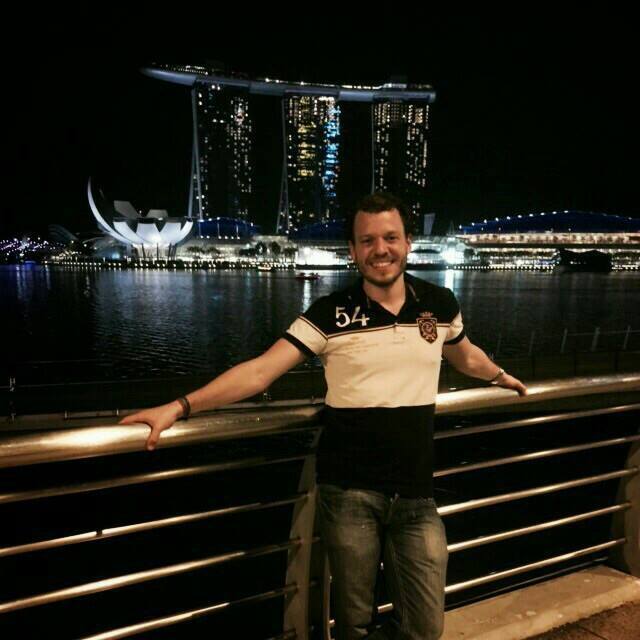 Over the past decade, I shared countless experiences with David Castaño at the Structural Biology Unit of CIC bioGUNE,. He was certainly my greatest support during my four years in Vizcaya, where I completed the Ph.D. I started in Barcelona. David is the classical golden boy in the lab, the one who, in the words of our supervisor, “makes things happen”. A beast of the bench top. Labcritics met with David in Singapore, where he is doing postdoctoral work, to present this story.
Over the past decade, I shared countless experiences with David Castaño at the Structural Biology Unit of CIC bioGUNE,. He was certainly my greatest support during my four years in Vizcaya, where I completed the Ph.D. I started in Barcelona. David is the classical golden boy in the lab, the one who, in the words of our supervisor, “makes things happen”. A beast of the bench top. Labcritics met with David in Singapore, where he is doing postdoctoral work, to present this story.
The latest edition of LabAsia was held in Kuala Lumpur and we used it as a meeting point for the Labcritics team. I decided to take advantage of the proximity to Singapore to visit David, who is embarked on a postdoctoral position away from home. After a flight and a long journey in a pristine subway, I arrived at the entrance of his condominium in Haw Par Villa at about one in the afternoon. The doorman was not happy: “You don´t have his apartment’s number? How will you find him?” Luckily, David came down the stairs. After a warm greeting, we walked towards his home. On the way, we passed by a gym and a swimming pool. “I go to the gym from time to time. Oh, last week we had a party in the swimming pool”. We entered the apartment through the back terrace; it was decorated with garlands and flags. “Yes, there was an international party last night.” I’m beginning to understand Singapore.
The apartment is new, a studio with a bomb shelter that David uses as a pantry. “Most apartments have it,” he said. Singapore is a particular country. The cleanliness, order and civility reach disturbing limits. “A friend of mine spent the night in jail because they believed he was trying to steal a lettuce when in fact he was just going to grab a shopping cart that was by the door” says David while frantically typing on his smartphone, planning the night. “It’s easy to meet people in Singapore, generally everyone is very open.” I propose a few questions for this interview, and start with his first memories related to science. “This is a question that makes me think about my life, but I can not find a specific moment that describes my interest for science, unlike our great mentor, Oscar Millet, who at the age of six was already doing his first experiments at home. For sure, I owe my vocation as a scientist to Oscar, my PhD advisor. Until then, it was clear that I liked biology or natural sciences, but I can say that my interest in research really started at CIC bioGUNE“. I ask him about the scientific education he received at school. “At school?? In Spain?? No scientific research or education. I’ve seen clear examples of the failure of the Spanish education system. The only research I did in school was to see if the girl I liked had a boyfriend or was single. Joking aside, science education at my school … I can not say it was good”. Despite the somewhat critical view of the educational system, David attributes his love of biology to a high school teacher. “I had a teacher who was a real enthusiast, who taught biology in a very close way, and motivated me to better understand science, thus I decided to start the Biology degree at the University of the Basque Country“. College years lived up to the legend. “It was one of the best times of my life, I surrounded myself with good friends during the five years. Actually, I have beautiful memories of that time. The effort required to get very good grades was less than my happiness during those five years. By that I mean that I didn´t find it very difficult; it’s affordable with a bit of dedication. College life is easy, living at home with your parents, all expenses paid … You just study and go to the numerous parties organized”.
Parties seem like a constant variable in this man’s life, but this never affected his capacity as a student or researcher. “Tonight we are going to a Korean barbecue” he says while texting his Asian gang. I keep asking: were there enough resources in college? Was the level high? Were students of the nerd/geek type? “The University of the Basque Country has undergone many changes over the past five years. When I started it was quite precarious, but I know that today it has been improved, and new courses and degrees, as well as Masters with a quality award, have been created. As for the students, there was every kind, and it was up to you to decide to go with one or another”.
Singapore air is stifling and humid, and the constant annual temperature is around 30 °C. In those days, a hellish and recurrent factor was added up: uncontrolled forest fires in Indonesia had been started by unscrupulous employers, forcing people to walk with masks in a thick, noxious haze. Some time after lunch I suggested going to the pool. There, I ask him why he chose a doctorate in structural biology. “Structural biology chose me, I did not chose it. I saw a position available at CIC bioGUNE, and it was a fashionable research center, so I wanted to go there. I had started a PhD at the university but, after a year, I decided to quit and go to Oscar Millet’s group at CIC bioGUNE. I thought I would have better career opportunities if I worked at a leading center in the Basque Country ” It looks like he made a good decision. “As for my doctoral thesis results, I can not complain: I published nine articles that allowed me to find a postdoctoral position with relative ease, first in New York and then in Asia. As for my supervisor, Oscar Millet, he is a charming, enthusiastic and hardworking person, I have no complaints whatsoever”. David was not focused exclusively on following a research career. “I started a PhD in the hope of finding a technical position or continuing my career as a researcher. At the end of this period, it was hard to get a job in the private sector in Spain, so I decided to continue my scientific career doing a postdoc in Navarra. I knew that this occupation had an expiration date, as in Spain postdocs are not allowed to stay in the same institute for more than three years . After the contract expired, I found myself in the same situation I was three years before, and difficulties in finding a job in a company were increasing, so I decided to contact a friend who was working in New York and let her know about my situation. Two days later, I received an email suggesting to send her my resume, as her boss was interested in hiring more investigators, and I was selected. I left Spain without hesitation, but unfortunately it didn´t go as well as I had hoped, so I decided to return to Spain in search of a new job. I did many interviews, but none came to fruition. I decided to search for postdoctoral contracts outside Spain, and found something interesting in Naturejobs, so I applied. Two weeks later, the job was mine. Again I decided to leave Spain, this time for Singapore”.
David ended up in the laboratory of researcher Roshni R Singaraja, part of the A * STAR agency and based in Biopolis, a hub of cutting edge research. “This group investigates cardiovascular disease (CVD). We try to find new genes involved in coresterol regulation. It is well known that high levels of high density lipoproteins (HDL) in the plasma prevent the development of diseases such as ischemic heart disease or myocardial infarction. HDL can remove cholesterol from arteries and transport it back to the liver for excretion. They are the smallest and densest lipoproteins, composed of a high proportion of proteins. The liver synthesizes these lipoproteins in empty form and, after collecting cholesterol, they increase their size when circulating through the bloodstream. In previous studies in our laboratory, we identified a new gene called ABCA8, involved in the transport of HDL cholesterol. Our main objective is to identify the role of this gene in the metabolic regulation of HDL cholesterol”.
We left the pool somewhat wrinkled and, after a shower, we were ready to leave. On the way to the restaurant, I kept asking. What differences do you find between research in Europe and in Asia? “I think you can not generalize. The scientific level is set by the research group where you work, not by Spain or Singapore. In terms of resources, here I see much more investment. We have no restrictions to buy whatever we need. This is something that in I couldn’t do there; I always had to ask permission”.
It is true that certain countries in Europe, especially in the south, suffer devastating cuts in the research budget. In Spain, during the madness of the boom years, riding on the coattails of the housing bubble, the budget increased as never before in the history of the country and, with it, the number of doctoral students. After 2008, however, there was a sharp fall in public and private investment in research, leaving thousands of brains wandering from town to town, from institute to institute, from contract to contract. Spain went from attracting foreign talent to driving out its own.
David seems to be at ease, with no intention of returning any time soon. “I have spent almost a year now in this laboratory, and the truth is I am very happy. My boss is very good, here there is less pressure than in New York, and there are very good scientists. Life in Singapore is very easy, it is a very clean and safe city, with good weather throughout the year, and it is full of very interesting women. ”
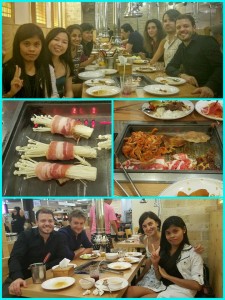
We arrived to the restaurant, located in a shopping mall, which must be the most common type of premise in this city-state. There he introduced me to his companions, all of them very nice. I do the weekly exception to my mostly vegetarian diet and fill my plate with raw meat to cook it on a hot plate in the center of the table. A very pleasant evening, as my grandmother would have said. Later, after most people went home, we headed towards Clarke Quay, a futuristic framework of neon, roofs, bars and clubs by the river. After a bit of dancing to deafening decibels, we took a taxi and went back home, where we quickly fell into REM sleep.
I woke up late in the day, listening to three girls whispering in the kitchen. They were three Filipino friends of David; they had come to eat with us. While looking in the fridge for a cold beer, David answered my last questions. “Speaking of my career as a scientist, I really can not complain. I have a lot of experience in different fields such as structural biology, cell biology and metabolism, and have met wonderful cities like Pamplona, New York and Singapore. We’ll see where I go next”. Do you like the scientist’s life, then? “I must admit that I like it. But everything has its pros and cons. Being almost a one day flight away from your city, family and friends is hard sometimes, but if you can cope with that, you grow as a person. Those of us who are in the world of research know how difficult it is to find a stable position, but I am convinced that one day my time will come”.
I am sure that one day his time will come: he has worked hard and has the right professional qualities. But my time has come, and I say goodbye to David and to this strange and attractive city, which has become the temporary home of thousands of researchers from around the world. Through the mist, I find the subway and dive in towards Changi Airport, in the hope of seeing David again soon.

